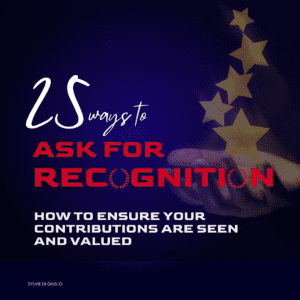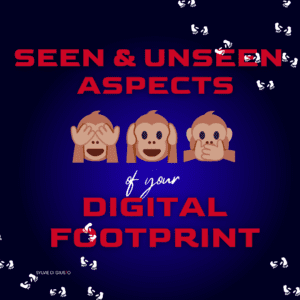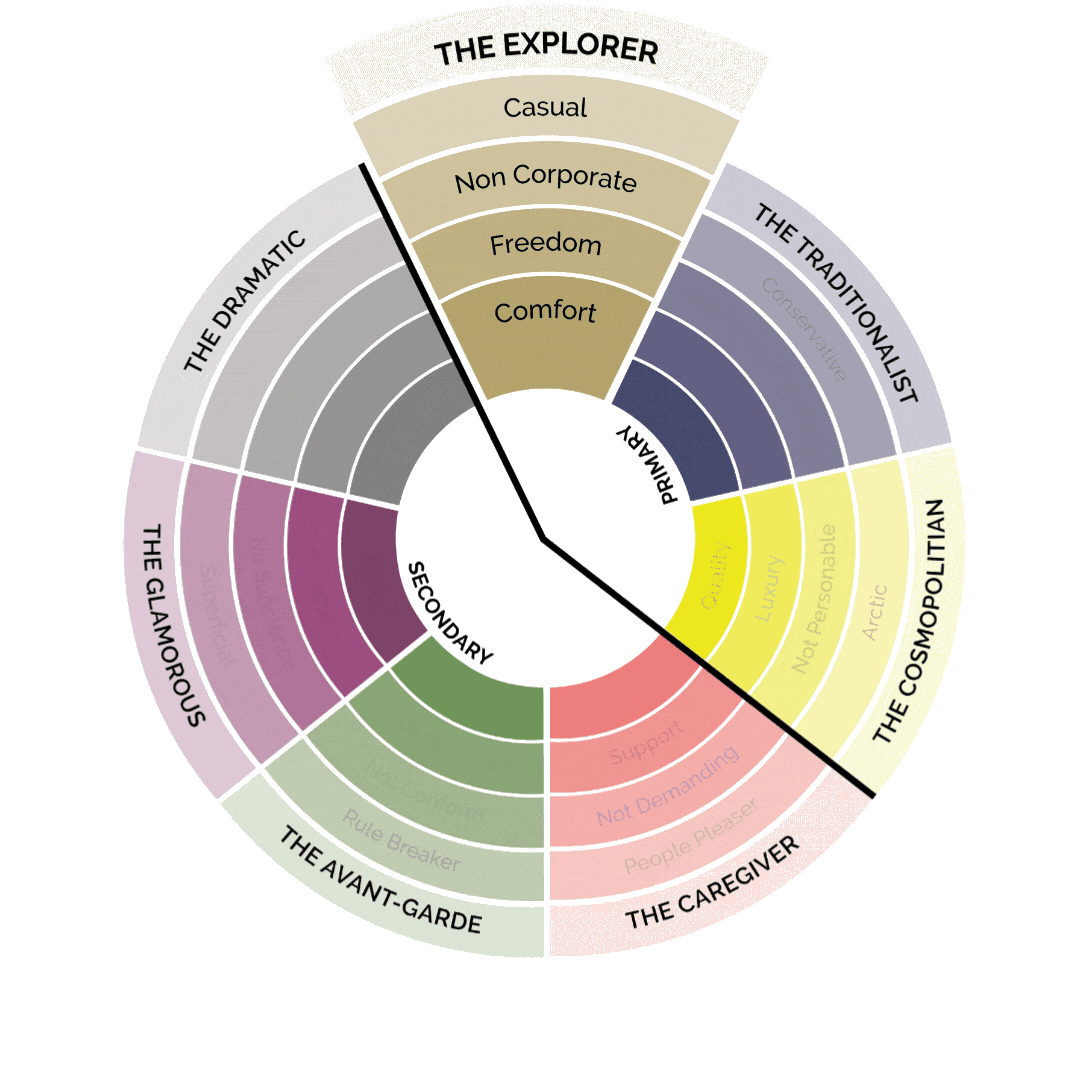DO YOU HAVE FALSE CUSTOMER BEHAVIOR EXPECTIONS?
25 Things you cannot expect from your customers
As a business owner or professional in a customer-facing role, it is important to remember that your customers are not always right. Sometimes, they may be unreasonable, frustrating, or even downright rude.
You cannot control everything your customers do or say. However, you can control how you react to your customers. In fact, your reaction will often dictate the customer’s next move and how the situation will ultimately play out.
With that in mind, here are 25 things you should never expect from your customers:
- Customers won’t always be happy.
They may be angry, frustrated, or just have had bad experiences in the past. - Customers won’t always be reasonable.
They may act in a way that is contrary to what you would expect or what you want. - Customers won’t always be patient.
They may want an immediate answer, solution, or fix, or otherwise give up easily. - Customers won’t always be understanding.
They may not accept your explanation, or they may not want to listen to your side of the story. - Customers won’t always be appreciative.
They may not even remember your name or what you did for them. - Customers won’t always be cooperative.
They may be uncooperative, obstinate, or just plain difficult to deal with. - Customers won’t always be grateful.
They may not even say “thank you” for your help. - Customers won’t always be polite.
They may be rude, crude, or just plain disrespectful. - Customers won’t always be easy to please.
They may be demanding, picky, or just plain difficult. - Customers won’t always be fair.
They may judge you harshly, or they may not be willing to give you a chance. - Customers won’t always be available.
They may have other commitments or priorities or simply ignore you. - Customers won’t always be interested in what you have to say.
They may be distracted, disinterested, or just not in the mood to listen. - Customers won’t always be cooperative.
They may be uncooperative, obstinate, or won’t follow instructions. - Customers won’t always be truthful.
They may lie, withhold information, or give inaccurate information. - Customers won’t always be satisfied.
They may complain, demand refunds, or simply never use your product or service again. - Customers won’t always be organized.
They may be disorganized, messy, or just plain chaotic. - Customers won’t always be on time.
They may be late, miss appointments, or not show up at all. - Customers won’t always be consistent.
They may change their minds, their needs, or their wants without warning. - Customers won’t always follow instructions.
They may misunderstand, make mistakes, or simply not follow through. - Customers won’t always have all the information you need to help them.
They may forget to mention important details, or they may not even know what you need to know. - Customers won’t always be willing to change.
They may be set in their ways, resistant to new ideas, or just plain stubborn. - Customers might not be willing to work with you.
They may already have a preferred vendor, or they may not want to change what they’re currently doing. - Customers won’t always act rationally and logically.
They may be emotional, irrational, or just confused. - Customers won’t always make the best decisions.
They may choose the wrong product, the wrong service, or the wrong vendor. - Customers might try to take advantage of you.
They may try to get more than they’re entitled to, try to get you to do something for free that they should be paying for.
What are some types of difficult customer behavior and how can you handle them?
Confused Customer Behavior
This is when a customer cannot make up their mind about what they want. They may change their minds often, or take a long time to decide on something. This can be frustrating for you because it takes up a lot of your time.
The best way to handle this type of behavior is to be patient and try to understand where they are coming from. It is important to remember that not everyone is the same and some people just need more time than others to make a decision.
Rude Customer Behavior
This is when a customer is disrespectful or impolite to you. They may use offensive language, interrupt you, or be otherwise rude. This behavior can be very difficult to deal with, especially if you are trying to be professional.
The best way to handle this type of behavior is to stay calm and polite. It is important to not take anything they say or do personally. Sometimes people are just having a bad day and taking it out on you. If the behavior continues, you can try to talk to them about it or ask a manager for help.
Unreasonable Customer Behavior
This is when a customer expects you to do something that is not possible, or they are not willing to compromise. They may be very demanding or expect you to bend the rules. This type of behavior can be frustrating because it can feel like you are not able to do your job.
The best way to handle this type of behavior is to try to find a compromise. Sometimes there is a middle ground that both you and the customer can be happy with. If the customer is still not happy, you can explain what the company policy is and why you cannot do what they are asking.
Aggressive Customer Behavior
This is when a customer gets angry and yells at you or threatens you. This behavior can be very scary and intimidating. It is important to remember that you are not responsible for the customer’s anger and you should not take it personally.
The best way to handle this type of behavior is to stay calm and try to diffuse the situation. You can do this by speaking in a calm voice, listening to what the customer is saying, and trying to understand their perspective. If the situation becomes too heated, you can ask for help from a manager or security.
Over-Critical Customer Behavior
This is when a customer is never satisfied with what you do or they are always finding fault with your work. This type of behavior can be very frustrating because it can feel like you can never please the customer.
The best way to handle this type of behavior is to try to find out what the customer’s expectations are and see if there is anything you can do to meet them. You can also try to explain what your company policy is and why you cannot do what they are asking. If the customer is still not happy, you can offer a refund or a discount on their next purchase.
What are some things you should never do when dealing with difficult customer behavior?
- Never take the behavior personally.
- Never get too attached to the outcome.
- Never get angry or defensive.
- Never take the easy way out by giving in to their demands.
- Never make promises you cannot keep.
- Never lose your temper.
- Never get emotional.
- Never argue loudly with the customer.
- Never let the customer see that they are getting to you.
- Never forget your manners no matter how difficult the customer is being.
- Never make assumptions.
- Never give up on a difficult customer
Challenging customer behavior can be an opportunity for you and your reputation
Be prepared for anything, because customers will surprise you. They may not always act the way you want or expect them to, but that doesn’t mean you can give up on them. In fact, your professional image and reputation relay to a big part in how you handle these difficult situations and challenging customers. Because if there’s any drama, all eyes are on you. If everything runs smoothly, way less of your peers, bosses or stakeholders even notice what you have achieved.
The customer is not always right, but they are always the customer. Remember, they’re the ones paying your salary, so it’s in your best interest to keep them happy. It is maintaining your cool and not expecting too much from your customer base. After all, they’re only human. Just like you.
Also, negative customer behavior can actually be a good thing – if you let it. It can teach you patience, understanding, and appreciation for customers. It can also help you grow professionally, as you learn how to handle difficult situations and people. So next time a customer surprises you with their behavior, remember that it’s an opportunity to learn and grow. Thanks, customers!
Any surprising customer behavior you have experienced? What are some things you’ve learned not to expect from your customers? Share them with me!
False customer behavior expectations in a nutshell

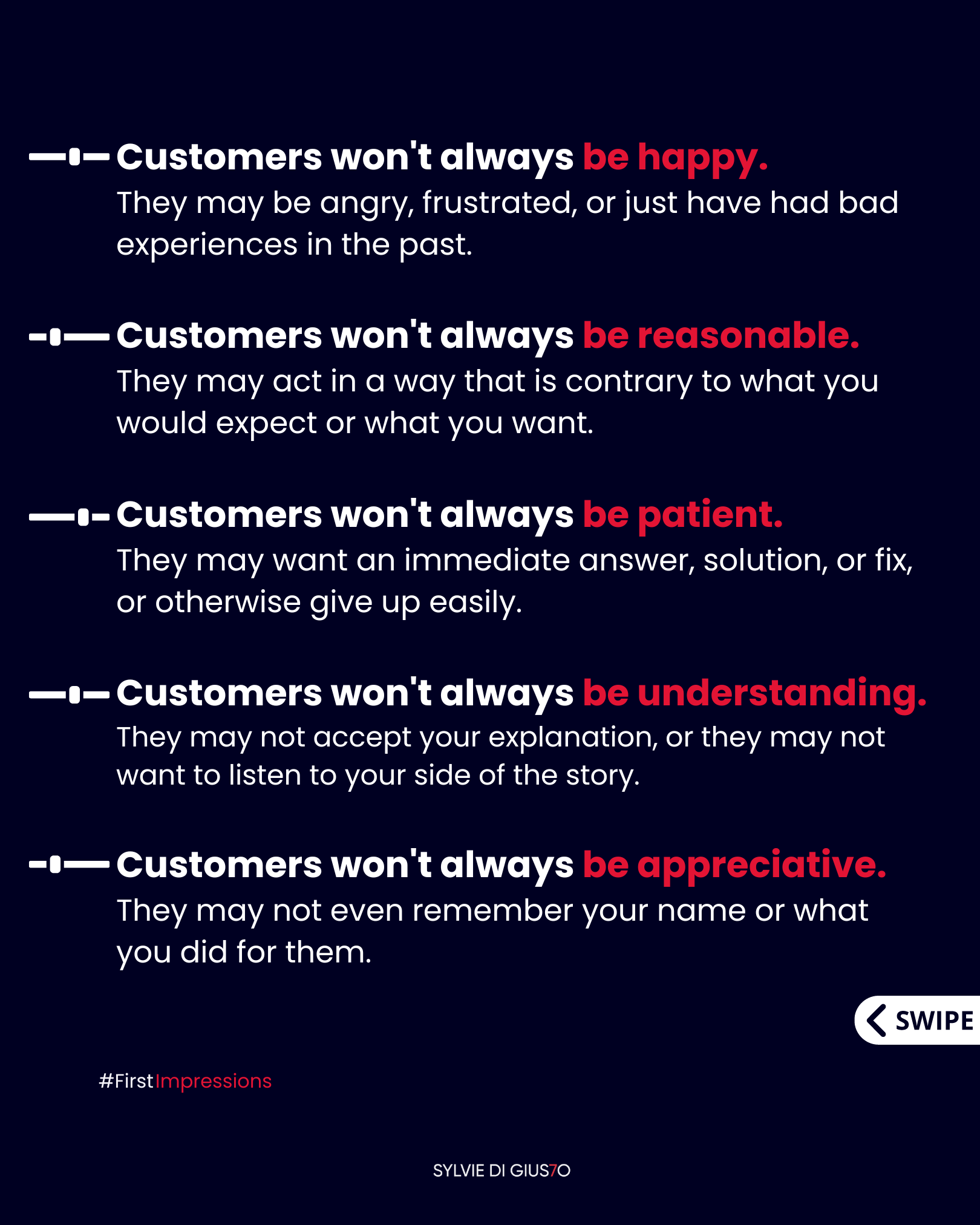
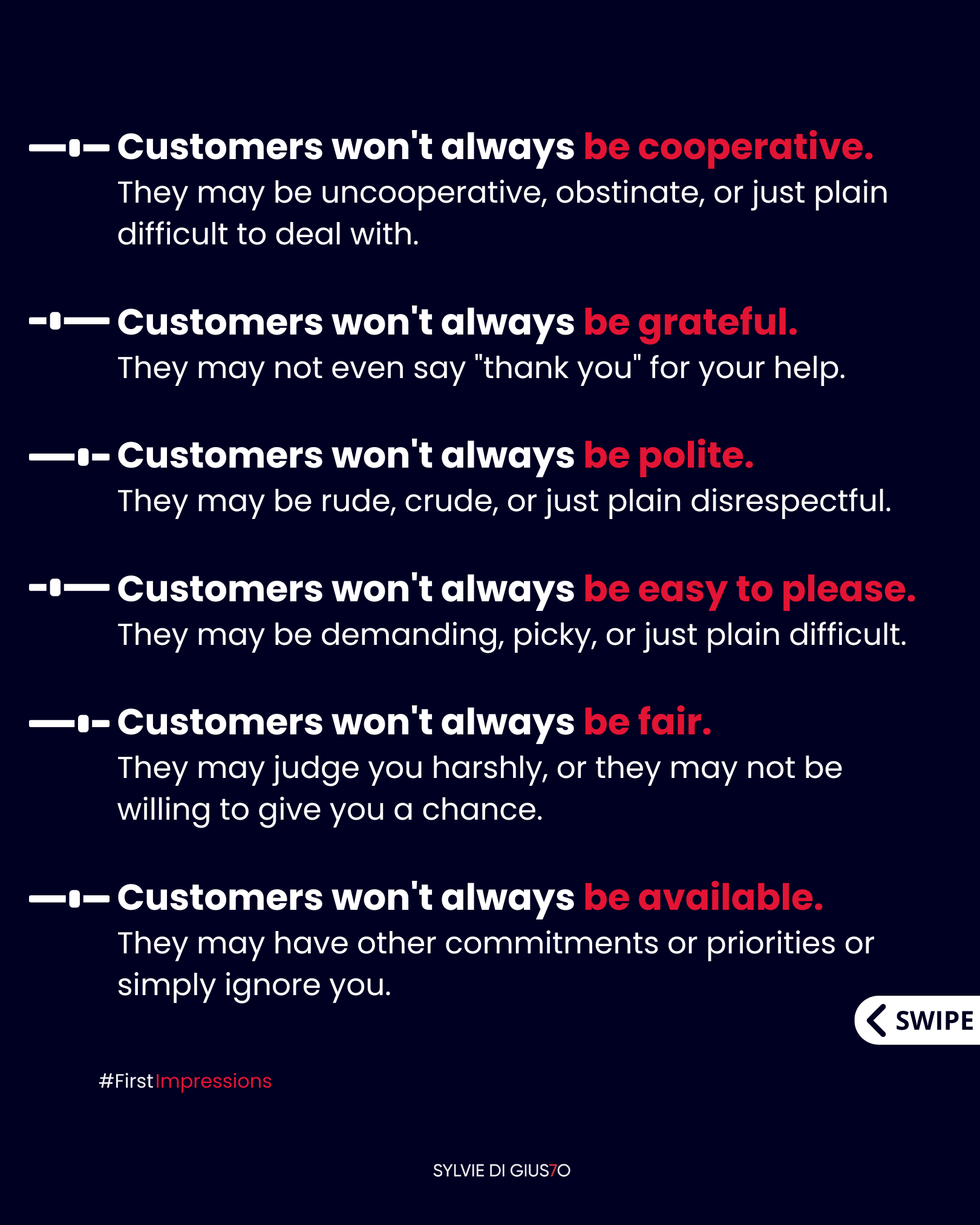
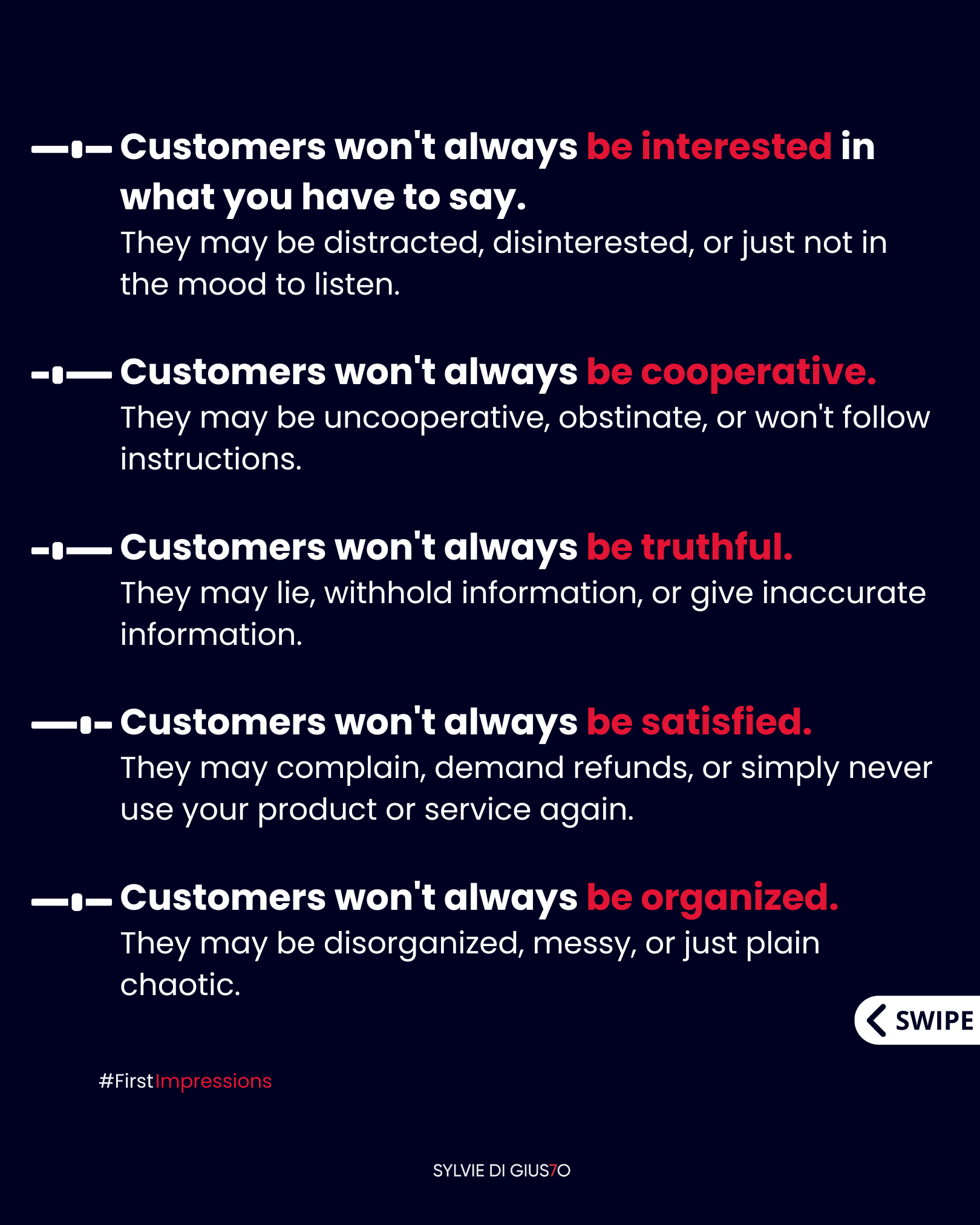
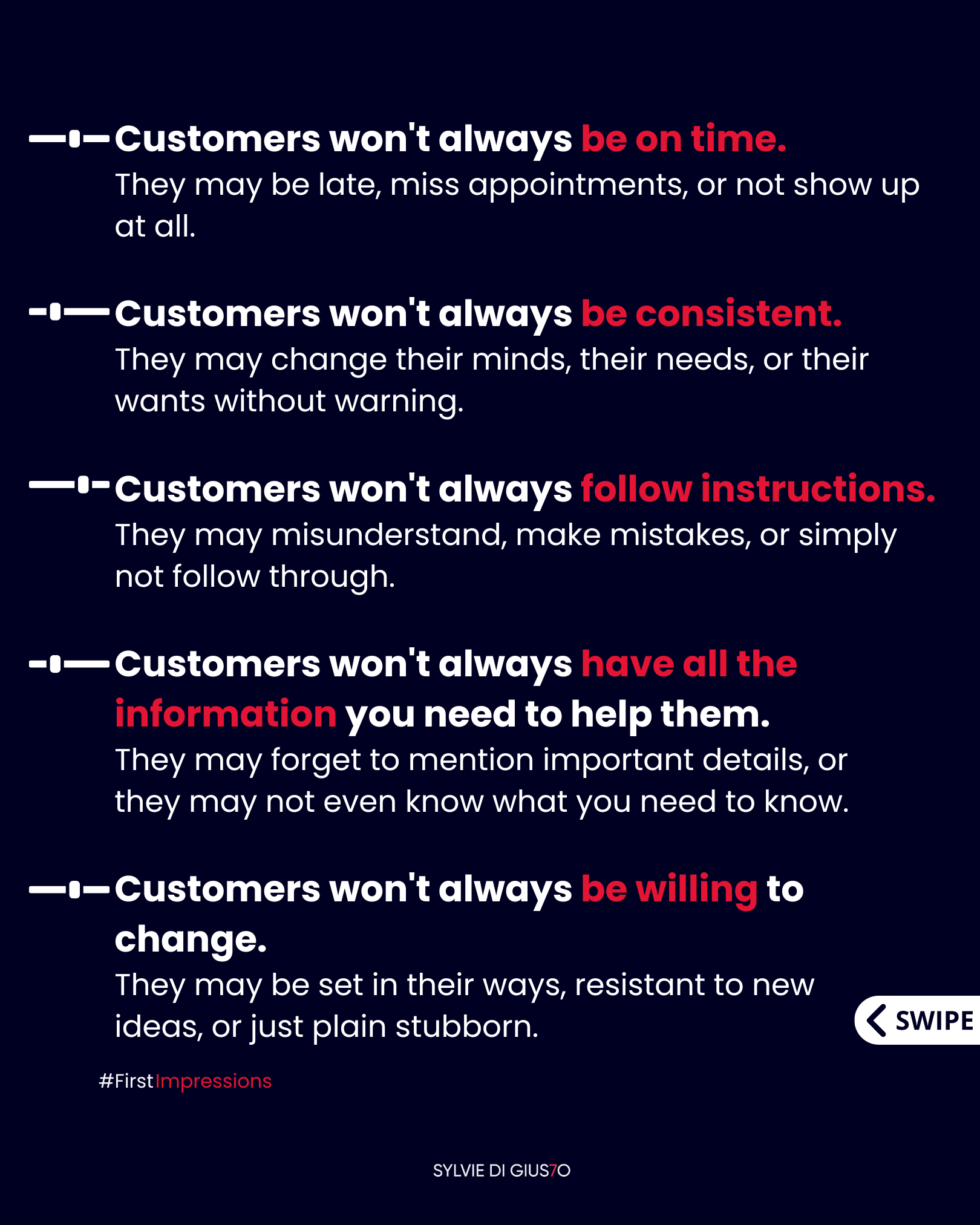
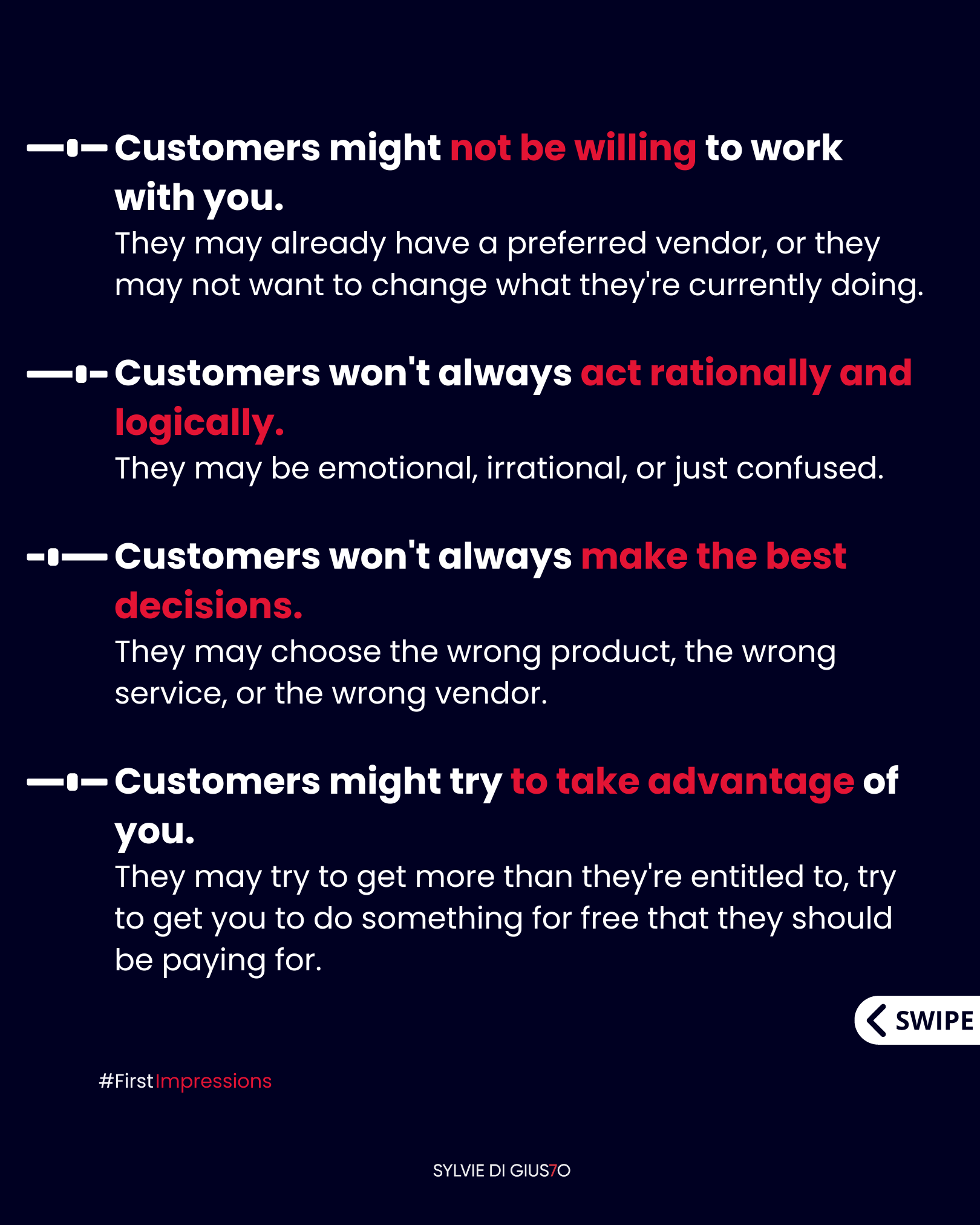
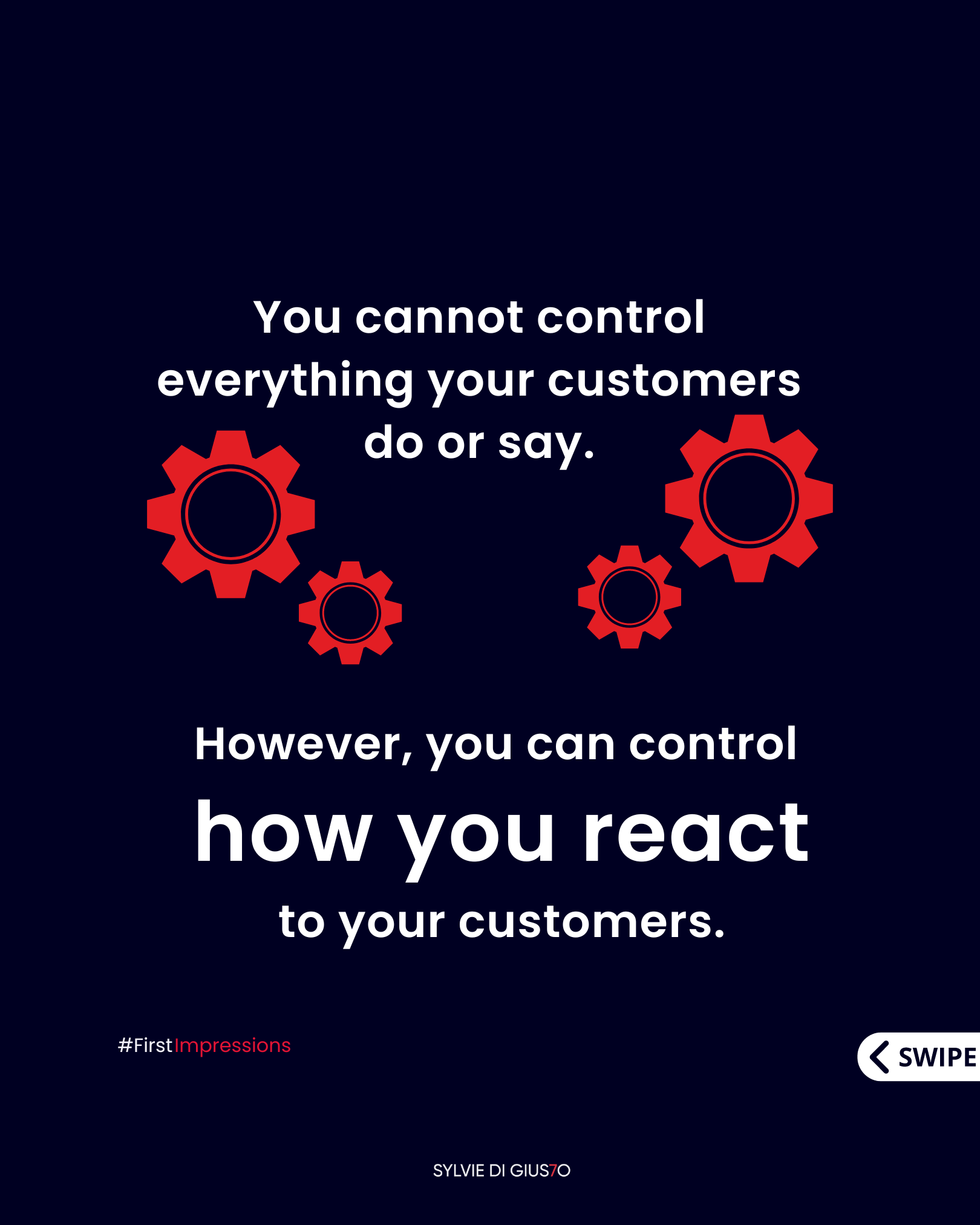
PS: Interested in more content like this? Make sure to follow me on Instagram. It’s where I visualize and publish my thoughts daily. I hope to see you there.
